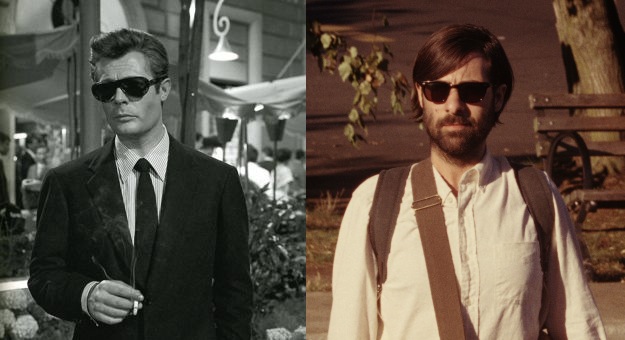By now, Mark Harris’s dire predictions about the future of film have been heard by many. In short, he argues that the major studios have exhibited a historically unprecedented degree of tunnel vision by locking themselves into a six-year plan of cranking out comic-book/franchise movies. This, despite the fact that it has been the worst box-office for summer movies since 1997.
While I agree that Harris is right on the money, I am curious about what seems like his rather mournful tone. Harris feels that major studios will control the future of what we see. But only, of course, as long as the studio system survives. Which raises the question: what if it starts to fail?
Now it could be argued that without the massive financing, production, distribution, and marketing deals the major studios have excelled at, the situation may leave filmmakers in a difficult, if not dire, situation.
Yet there is an important historical perspective to address: in 1963 the studio system did begin to collapse due to its overinvestment in musicals and historical epics, initiating a downward spiral that would continue for six years. Sound familiar?
My point is not only have the studios been willfully determined not to learn from the past; but also remarkable films came after 1963, paving the way for an artistic revolution, well-documented by Harris, in 1967 (led by The Graduate and Bonnie and Clyde) and the golden age of the 1970s. Thus history would suggest that good, if not great films, will emerge after the equivalent of 1963 hits the major studios, whether it is next year, the year after, or five to six years later.
Keeping this historical argument in mind, what is fascinating to me is how three significant films this year echo those made in the early sixties. We’ll start with The Grand Budapest Hotel, the finest film written and directed by Wes Anderson to date. It uses a genre-heavy approach, the caper film, to explore questions about history, how we interpret its larger trajectory, and how we revise these interpretations. The film looks at historical artifacts (the valuable painting all the characters are out to get), transactions (the will of a mysterious older lady), and destruction and loss (the effects of world war and totalitarianism) through personal relationships, giving Ralph Fiennes a fantastic role, where he emotionally anchors the dizzying perspectives—not just in the chase scenes (which were some of the most manic fun you could have watching movies this year), but also in the depictions of the continual desire to exploit history for personal and/or ideological reasons: a very sad lesson indeed to have to learn and remember.
In 1962, The Man Who Shot Liberty Valance likewise deconstructed the myth of individual heroism in the creation of the American West, that origin story heard in countless political speeches about American identity. John Wayne at the time was one of the few actors with the gravitas to make us believe in the illusion, even though we see it falling apart, and as we watch him suffer for it, we once again are forced to confront the personal meaning of history. The film, with its lasting directive, “When the legend becomes fact, print the legend,” may be a bit more cynical than The Grand Budapest Hotel, but equally romantic in the fading dreams it projects onscreen.
And two films of this year, Force Majeure and Listen Up Philip, replay the push/pull of the two great Italian films of 1960: L’Avventura and La Dolce Vita. Force Majeure presents us with a personal crisis: a man panics and deserts his family for a moment; the film then investigates the ripples caused by this brief event, jettisoning plot along the way to explore the chilly themes of alienation and deception. Similarly to L’Avventura, which never explains the disappearance of a central character, Force Majeure layers scenes that have uncanny connections in how pretenses about human behavior, especially in its more idealistic forms, are dissected. The parallels between men and women in isolation—both psychically and geographically–seem to come right from L’Avventura. And these two present and past versions of the nearly plot-less film strive to capture impressions of life limited by a materialistic environment that reduces them to atmospheric traces of spirit.
Perhaps the most interesting comparison is Listen Up Philip with La Dolce Vita. As the embittered, newly-successful author, Philip, Jason Schwartzman radiates a more negative version of the charisma of Marcello Mastroianni, who plays Marcello, a journalist who aspires to be a writer. Director and writer Alex Ross Perry transforms the literary world of New York City into an entropic landscape hard to escape, the Americanized sweet life turning soft of Federico Fellini’s Rome. In these two films, Philip and Marcello make critical mistakes based on their thinking that youthful ambitions will grant them a free pass from answering difficult questions about their ethical responsibilities to their craft and those around them. With both, the damage quickly piles up.
The final voiceover in Listen Up Philip and the concluding scene in La Dolce Vita, the famous image of the strange creature washed up on shore, suggest the two men are doomed to be spectators rather than participants in life. They are products of a social machine that will churn out many more versions of people just like them—a human franchise, if you will, one that more than hints at the artistic failures caused by the arrogance of creating plans for maximizing short-term profits.
It may be those not listening to Hollywood, but plugged into a different psychic channel, that promises a future for film far more exciting—that just as in 1962, could not be predicted fully in 2014.

